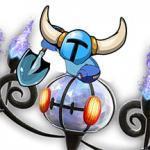Leaderboard
Popular Content
Showing content with the highest reputation on 04/12/2019 in all areas
-

Nostalgia and the validity of opinion
thebitterroost reacted to JohnStacy for a topic
Lately, there has been a storm of things attacking Ocarina of Time as being a sub-par game entering my view, and I find the different perspectives interesting, and a lot of valid points are made. A lot of these things actually come from a wide time span, from about 2010 to a month ago, but for whatever reason the first time I see them is today. So I am going to offer my opinion on the subject, mainly because my graduate thesis piece on Ocarina of Time is to be released soon. Background in spoiler tags. Critiques are a wonderful aspect of the creative process. As a music composition graduate student, my professor tells me that if nobody hates what you do, it's because it's bland and uninteresting. If you have anything of value, somebody somewhere will hate it. So I see things I like in the same light. However, the intent of critique seems to carry a lot more weight because of this. More times than not, the intent is a lot more clear than the author may have thought. Most of the recent criticisms of Ocarina of Time seem to come from a place of "let's knock this game off its pedestal because it is only good because nostalgia." The reason I have a problem with critiques that come the place of dethroning is that they critique aspects of the gameplay and story much more harshly than they do for other games. In the example of story, one such critique praised Wind Waker, Link to the Past, and Zelda 1 for their stories, but attacked Ocarina of time for being uninteresting purely for the aspect that the whole story was centered around "go get these things, beat Ganon." The bad part about this is that the games they praised were centered around the exact same concept so the critique fell flat. This kind of critique happens any time somebody doesn't agree with the success of a creative endeavor. A few years ago, a list started circulating of the most overrated jazz artists throughout history, along with reasoning. The two most overrated jazz musicians on this list were Maynard Ferguson and Stan Kenton, with Charles Mingus being 3rd. This really struck me weird, as the reasoning was very shallow. Ferguson was attacked for his "sparkly, overly bright sound." He was a trumpet player who played in the high range. High trumpet is sparkly and bright. You can not like trumpet, but you have to admit that bias if you're going to give the defining aspect of the instrument as the main critique of the artist rather than dancing around it entirely. The same thing happens in critiques of software all the time. A while ago the notation software Sibelius was featured in a video on bad design, and within days there were people who had never touched the program talking about it like they were long time experts on it. It was interesting, because these people I know had never used notation software were suddenly questioning me why I used it, as if they were a mentor suggesting a better alternative. People who had never used notation software were all suddenly popping up with the exact same complaints about the program overnight. (Manifested in discussions about notation software and people trying to convince others away from sibelius because "but the ribbon is bad, and so are the dialogue boxes!") Back to Ocarina of Time, and to a similar extent Majora's Mask, a lot of the critiques really do seem to be trying to say "you only like this game because of nostalgia, and if you didn't have the nostalgia you wouldn't like it, and if you do like it it's because you don't know anything about good games." I will not contest that first part. If you honestly think that Ocarina of Time is viewed like it is without at least some nostalgia, you're wrong. The second point also is somewhat valid. I have known of quite a few people who played it for the first time as adults and didn't like it. Younger people who played it for the first time also don't get it. So you can make the argument that nostalgia fueled the view of the game as a masterpiece. However, if you're going to make that argument, you have to take into account that Link to the Past, Zelda 1, and Wind Waker typically get the same response. Apply to Mario games, Metroid, etc. This is where the argument actually falls apart in most cases. The last point is one I highly object to. I really never have gotten into the idea that people have where "if you like this, it's only because you don't know what good <thing> actually is." I was told that I only like Herp Albert, Weather Report, and video game music because I didn't know what good music is. I am almost done with a master's degree in music composition, have played as a professional session musician for a groups of a lot of genres (pop, rock, country, jazz, Latino, etc). I STILL like Herp Albert, Weather Report, and video game music. But now I know what really good music is, and I can listen to that too. I can listen to the greatest composers of the Classical music canon. I can listen to the greatest jazz artists. I can appreciate the greatest rock artists. I enjoy and appreciate all of those. But I can still listen to the ones I used to listen to. I have played great video games. I still like Ocarina of Time. I still like Majora's Mask. I am a casual gamer. I don't like highly difficult games, and never really have. Difficulty isn't a sole factor in determining a game to be good or not. I am not really interested in playing Cuphead for this reason. I play games mainly for story and progression. Yet, people like me are referred to constantly in these critiques as being "not real gamers." This is the equivalent of being told that "because you play casually, you don't know what a good game is, therefore you are wrong if you like this game." Part of the reason I dislike this kind of critique is largely because the intent drenched in passive aggression. The passive aggressive tone quickly becomes very obvious the more the person giving the critique repeats the phrase "I just don't get it is all." Backing away and looking at the discussion as a whole, it is perfectly clear that there is no intent to understand or try to communicate about it. You can say "I don't like this thing" without having to hide it behind a "I don't get why people like this" if you're not actually going to make an attempt to understand. It is okay to not like things, and it is okay to accept that people like things. It is okay to come out and say that you don't like a thing, and it is okay to justify why you don't like it. On the other hand, it's okay to like things, and it is definitely okay to not attack people for not liking things, which is what got us in this mess in the first place. For the most part, most of these critiques are riddled with people in the comment section that just attack back without actually contributing. "THIS GAME WAS GREAT YOU"RE STUPID" kind of comments. I guess that's just what has been bugging me lately.1 point -

PRC390 - The Fifth Zub Smash Brother (Zub + Super Smash Bros Brawl)
TheVideoGamer reacted to PlanarianHugger for a topic
Submitted, managed to fit both sources.1 point
